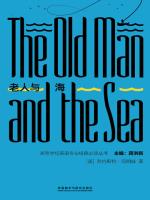202115015105
Title: Triumph and Tragedy: A Review of Ernest Hemingway's "The Old Man and the Sea"
Ernest Hemingway's The Old Man and the Sea* is a timeless novella that captures the essence of human resilience, dignity, and the struggle against the forces of nature. Published in 1952, this work is often hailed as one of Hemingway's finest achievements and a quintessential example of his distinctive writing style, characterized by its economy of language and profound depth of meaning.
The story centers around Santiago, an aging Cuban fisherman who has endured 84 days without catching a fish. Despite his long streak of bad luck, Santiago remains determined and sets out alone into the Gulf Stream, hoping to end his dry spell. On the 85th day, he hooks a giant marlin, and what follows is an epic battle between the old man and the majestic fish. Santiago's struggle with the marlin is not just a physical contest but a test of his spirit and willpower.
One of the most striking aspects of *The Old Man and the Sea* is Hemingway's masterful portrayal of Santiago's character. Santiago is depicted as a figure of quiet strength, humility, and unwavering perseverance. His relationship with the sea is one of deep respect and understanding, reflecting Hemingway's own love for the ocean and fishing. Through Santiago's internal monologues and reflections, Hemingway explores themes of isolation, pride, and the inherent nobility of human effort.
The novella's rich symbolism adds layers of meaning to the narrative. The marlin represents the ultimate challenge, a worthy adversary that brings out the best in Santiago. The sea serves as a metaphor for life's unpredictability and the larger forces beyond human control. Santiago's struggle with the marlin and his subsequent battle with the sharks that attack his prize highlight the theme of man's vulnerability in the face of nature's indifferent power.
Hemingway's prose is spare yet evocative, capturing the rhythms of the sea and the intensity of Santiago's ordeal with remarkable clarity. His use of simple, direct language belies the profound emotional and philosophical depth of the story. This stylistic choice enhances the novella's accessibility while inviting readers to engage with its deeper themes.
Despite its brevity, *The Old Man and the Sea* is a richly layered narrative that has sparked numerous interpretations and critical analyses. Some view it as an allegory of the human condition, emphasizing the nobility of striving and the inevitability of suffering. Others see it as a meditation on the artist's struggle, with Santiago's battle mirroring Hemingway's own challenges as a writer.
Critics have lauded *The Old Man and the Sea* for its universal appeal and enduring relevance. It earned Hemingway the Pulitzer Prize for Fiction in 1953 and played a significant role in his being awarded the Nobel Prize in Literature in 1954. The novella's themes of perseverance, dignity, and the struggle against insurmountable odds continue to resonate with readers worldwide.
In conclusion, Ernest Hemingway's *The Old Man and the Seais a masterpiece of modern literature that offers a profound exploration of human resilience and the complex relationship between man and nature. Santiago's epic struggle serves as a testament to the enduring human spirit, making this novella an essential read for anyone seeking to understand the depths of human determination and the beauty of Hemingway's craft.
This review highlights the enduring significance of Hemingway's novella and its profound exploration of human themes, underscoring its place as a timeless piece of literature.



 京公网安备 11010802032529号
京公网安备 11010802032529号